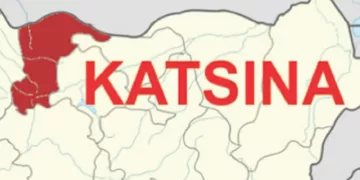The strategic impact of affordable diesel prices on the economy cannot be overstated, especially in a country like Nigeria where transportation, a key component of any business activity, is controlled by the private sector. Diesel is the fuel that powers most commercial vehicles, including trucks, buses, and generators, which are essential for the movement of people, goods and services across the country.
If diesel prices are high, it directly affects the cost of transportation, which in turn affects the prices of goods and services. For example, if a trader has to pay more for transportation, they will pass on the cost to the end consumer, resulting in higher prices for basic commodities like food, clothing, and household items.
This is why the recent reduction in the price of diesel to N940 per litre by Dangote Refinery is a welcome development. It will, hopefully, help reduce the cost of transportation, which will presumably, lead to a reduction in the prices of goods and services. This is good news for consumers who have been grappling with high inflation and weak purchasing power.
The price change of N940 applies to customers buying five million litres and above from the refinery, while N970 is for customers buying one million litres and above. It would be recalled that the management of Dangote Petroleum Refinery announced a further reduction of the price of diesel from 1200 to 1,000 Naira per litre barely two weeks ago.
This marks the third major reduction in diesel price in less than three weeks when the product was sold at N1,700 to N1,200 and also a further reduction to N1,000 and now N940 for diesel and N980 for aviation fuel per litre.
The decision of Dangote Refinery to first crash the price from about N1,750/litre to N1,200/litre, N1,000/litre and now N940 is an eloquent demonstration of the capacity of local industries to impact the fortunes of the national economy positively. The trickle-down effect of this singular intervention promises to change the dynamics in the energy cost equation of the country, amid the inadequate and rising cost of electricity.
The reduction will have far-reaching effects in critical sectors like industrial operations, transportation, logistics, and agriculture, contributing to easing the high inflation rate in the country. It must be noted that most manufacturing companies in Nigeria generate their own electricity powered by diesel. If the price of that energy source is affordable, a lot of companies will be back in operation with the added advantage of enhanced employment opportunity and a friendlier cost of products.
Before now, manufacturers were confronted with abnormal cost of doing business instigated by energy crisis. What followed was a steep rise in prices of factors of production as well as other inputs that impacted negatively in the economy. As a result, many foreign companies had to leave the country due to the high cost of doing business. This and the worsening power supply had and is still having very devastating effects on businesses at the moment.
Nigeria’s annual inflation rate has surged to 33.2 per cent, the highest since March 1996, up from 31.7 per cent in the previous month. This sharp increase in inflation is primarily driven by the steep depreciation of the local currency and the removal of fuel subsidies. Food inflation, which constitutes a significant portion of Nigeria’s inflation basket, has continued to climb, reaching 40 per cent in March, the highest level since August 2005. Additionally, the annual core inflation rate, excluding farm produce and energy, has soared to a multi-year high of 25.9 per cent in March. Consumer prices, however, eased slightly to three per cent, down from 3.1 per cent as of February 1.
The benefits of affordable diesel prices extend beyond the consumer level. It also has a positive impact on the nation’s economy as a whole. For one, it will help reduce the cost of production for manufacturers and other businesses that rely on diesel-powered machinery. This will make them more competitive and ultimately lead to increased economic growth.
Furthermore, affordable diesel prices will also make it easier for small and medium-sized enterprises (SMEs) to thrive. SMEs are the backbone of any economy, and reducing their operational costs will help them grow and create jobs which, in turn, will boost the economy.
Finally, the reduction in the price of diesel to N940 per litre is a step in the right direction. It will help reduce the cost of transportation, lower the prices of goods and services, and boost the nation’s economy. We urge the government to continue to prioritize policies that will make fuel prices affordable to Nigerians.











